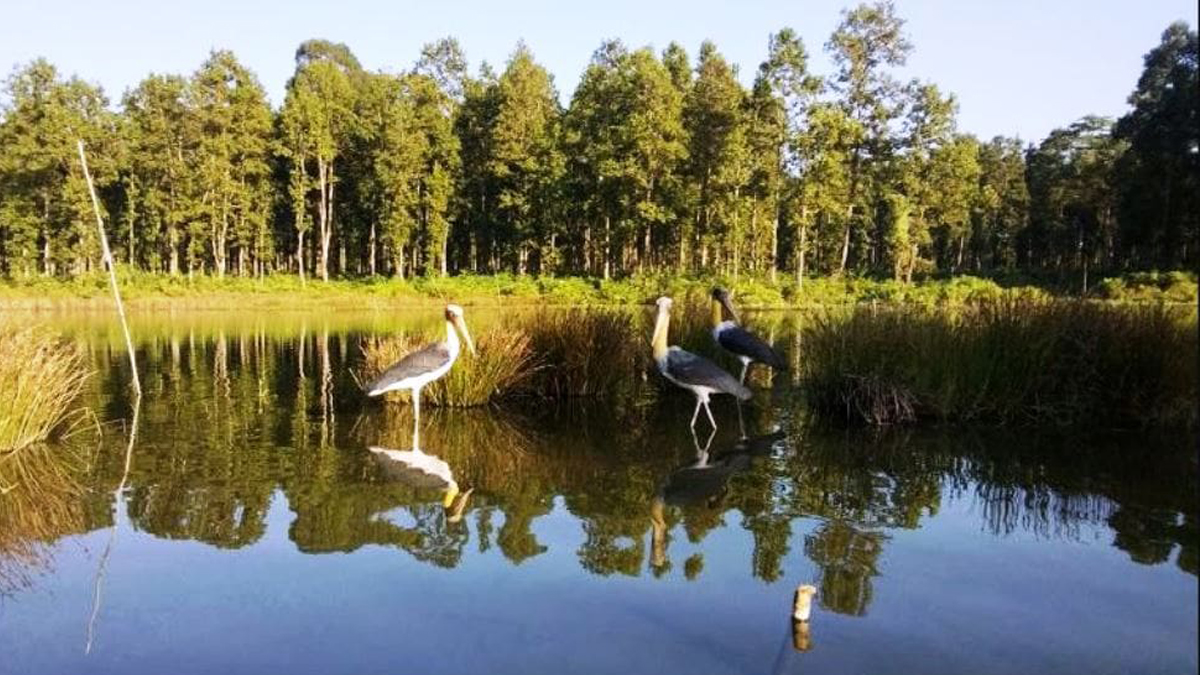The gradual decline of wetlands, crucial for humans, agriculture, and biodiversity, has sparked concerns among conservationists. The lack of adequate conservation efforts has led to the shrinking of these vital ecosystems, prompting calls for urgent action from concerned stakeholders.
Pramod Bhattarai, Chief Conservation Officer at Shuklaphanta National Park, emphasized the pivotal role wetlands play as significant habitats for a diverse range of animals and birds. He underscored that wetlands serve as a lifeline to biodiversity and contribute significantly to the availability of water for wildlife, birds, and humans. Bhattarai stressed the urgency of protection, stating, “Wetlands are connected to the existence of human life. They are a mandatory element in the wildlife’s habitat as well. Even the economic, social, and cultural aspects of human life are determined by wetlands.”
Highlighting the dependence of some communities and wildlife on swamp areas, Bhattarai noted that five percent of the country’s territory is covered by swamp areas. Laxmi Joshi, Chief of National Trust for Nature Conservation in Shuklaphanta, echoed the sentiment, emphasizing the cultural importance of ponds and wetlands. She explained their connection to human traditions and identified the significant challenge in protecting these marshlands.
Ritu Joshi, a forestry student, emphasized the importance of wetlands in maintaining biodiversity and ecological balance. She called for concerted efforts from local governments, recognizing their pivotal role in wetlands conservation. The wetlands in Kanchanpur are facing a gradual fade due to human encroachment, requiring special attention and engagement from multiple sectors to curb their decline, shared the conservationists.



Comments